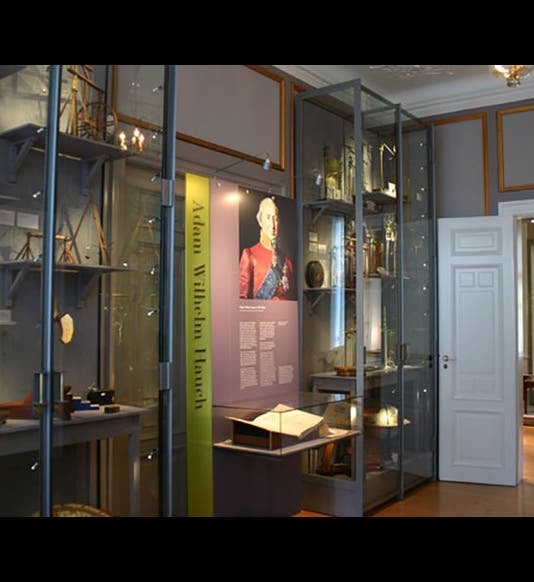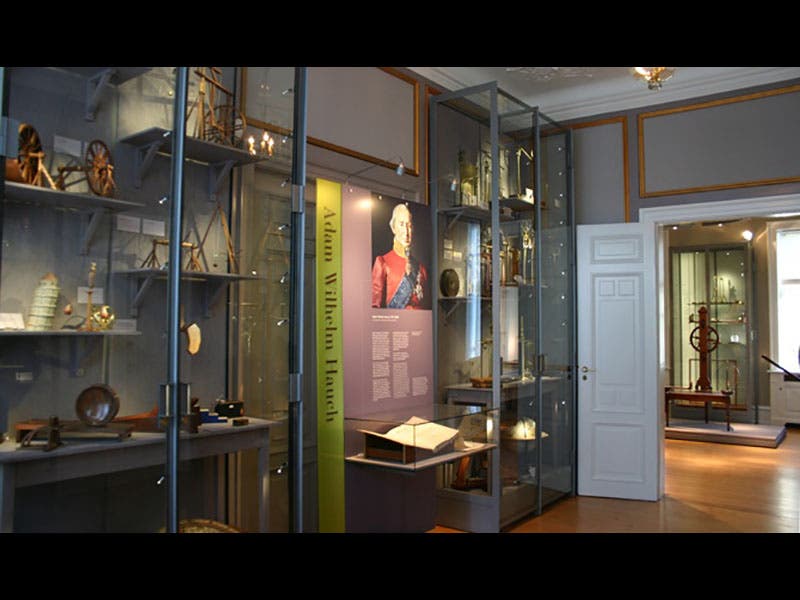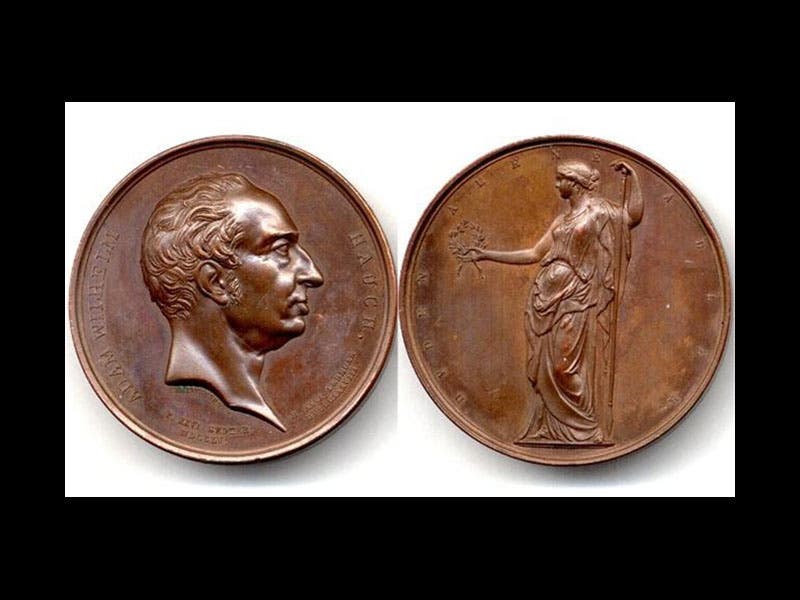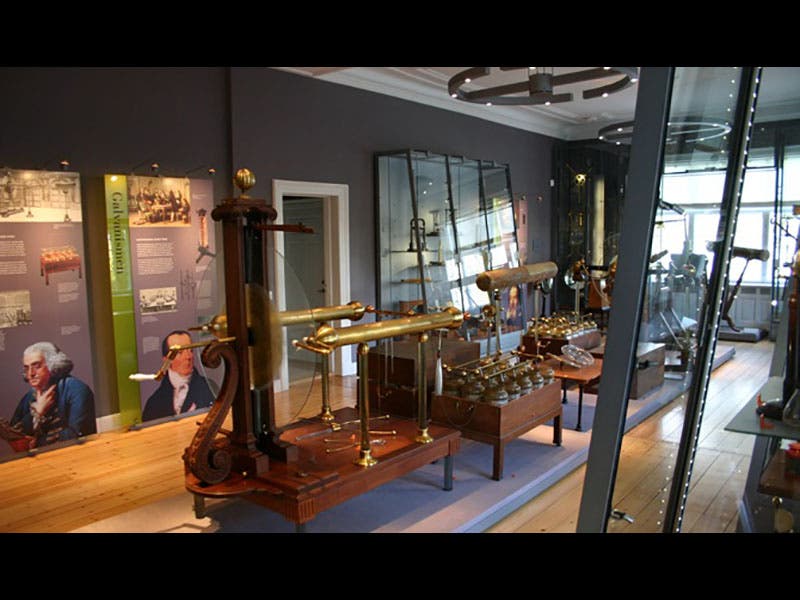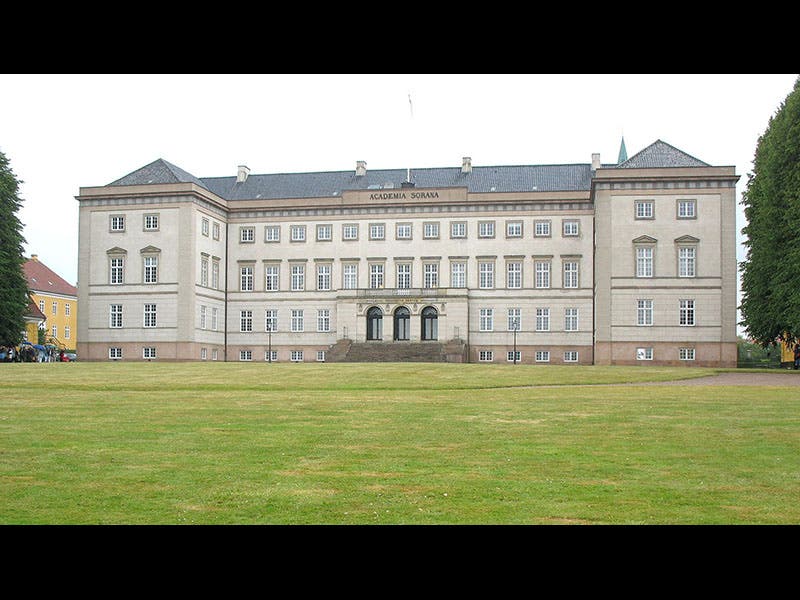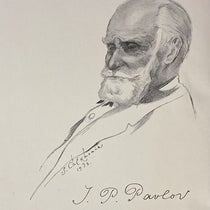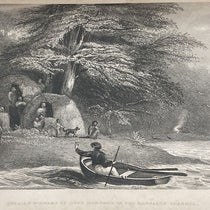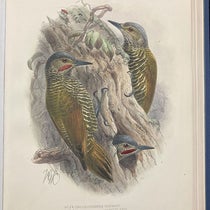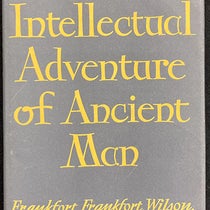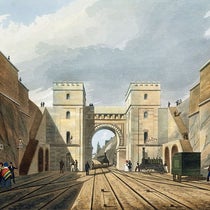Scientist of the Day - Adam Wilhelm Hauch
Adam Wilhelm Hauch, a Danish military man, political figure and physicist, was born Sep. 26, 1755. Hauch is one of hundreds if not thousands of scientists who were prominent and respected in their own time, made significant contributions to scientific culture, and left important physical legacies, and yet have been almost completely written out of mainstream historical accounts. Hauch was a military man who rose to become Lord Chancellor in Copenhagen, but he was also very interested in experimental physics, and during his military and diplomatic travels, he amassed a large collection of scientific instruments--electrical generators, Leiden jars, vacuum pumps, telescopes, and the like. He also published a widely-used textbook of physics in 1794, a book that was popular enough to require a second edition 5 years later. We do not have any editions of this work--written in Danish--in our History of Science Collection, and it too would probably have disappeared from historical notice, were it not for the fact that the young, precocious Hans Christian Oersted wrote a review of Hauch's text in 1794. Oersted took Hauch to task for being too "atomistic," and for not giving enough attention to the "dynamic" natural philosophy of Immanuel Kant. Oersted would go on to become famous for discovering electromagnetism, and this little bit of Hauchiana floats along in his wake. Otherwise, one can find practically nothing about Hauch in any narrative concerned with the development of physics at the turn of the 18th century.
Fortunately, Hauch left behind a physical legacy in the form of his collection of instruments. He sold them to King Frederik VI in 1815, and Frederik in turn presented the collection to the Sorø Academy, where Hauch's son was an instructor, and could thus be curator as well. The Hauchs Physiske Cabinet languished for a while, but it has now been beautifully restored, and can be seen in the Sorø Academy (fifth image), which resides in the town of Sorø in west-central Zealand, the large island of Denmark that hosts the city of Copenhagen on its eastern coast. The Hauchs Physiske Cabinet is one of the finest collections of early scientific instruments in all of Europe. The photos of the Cabinet above were taken from the website of the Museum’s exhibition space designer. A medal presented to Hauch in 1838 provides one of our best portraits of Hauch (second image); another portrait can be seen in the background of the first photo.
Dr. William B. Ashworth, Jr., Consultant for the History of Science, Linda Hall Library and Associate Professor, Department of History, University of Missouri-Kansas City. Comments or corrections are welcome; please direct to ashworthw@umkc.edu.

